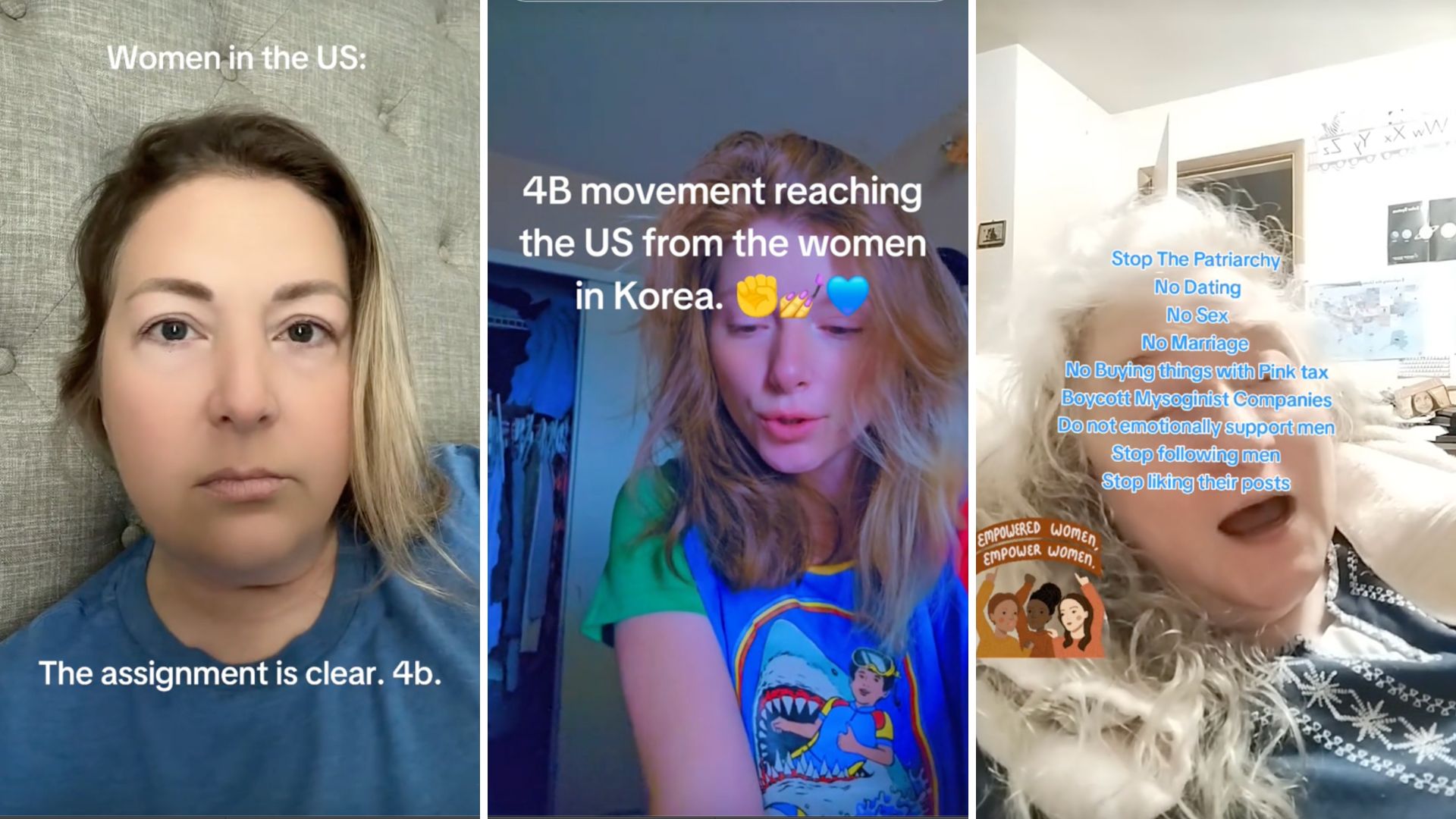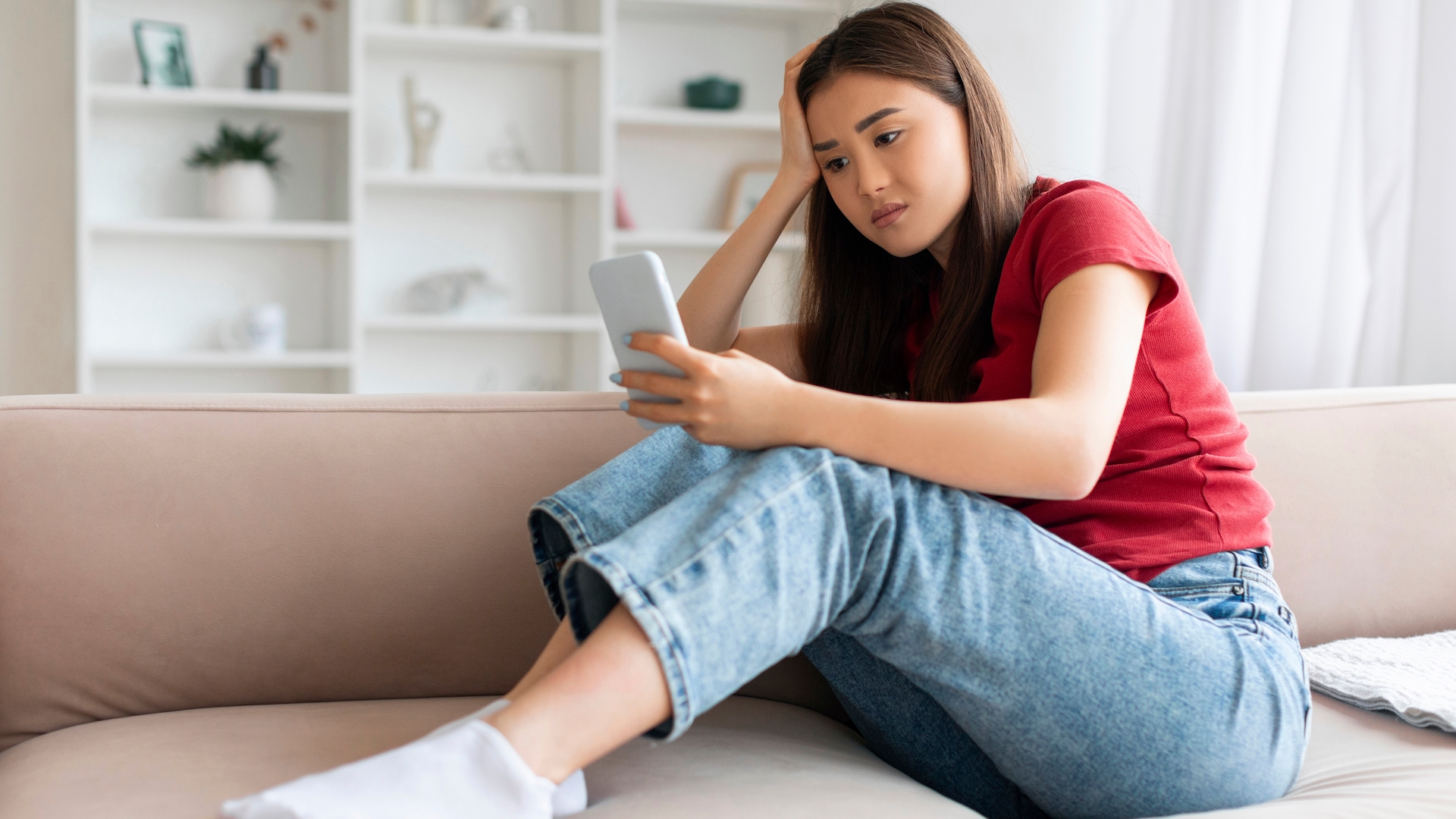Amidst widespread national protests against gender inequality and violence against women in 2018, South Korean women launched the “4B movement,” an online feminist campaign where women vowed to refrain from dating, having sex with, having kids with, and marrying men. Why is this relevant? Because mere moments after it was announced that Donald Trump was going to be the 47th president of the United States, searches for the “4B movement” in the U.S. skyrocketed.
Trump has run his entire presidential campaigns — I’m sorry all three of his presidential campaigns — on hate. Hate of immigrants, hate of those with different religious beliefs, and hate of women. In his 2024 campaign alone, he’s said he’d protect women “whether they like it or not,” that he’d keep women from even “thinking” about abortion, and of course let’s not forget that 26 women have accused him of sexual assault. He’s also emboldened men to tweet things like “Your body, my choice. Forever.” (Yes, really).
Knowing that over 72 million people voted for this man is frightening to say the least. And considering the future we’re going to have under this man as the most powerful man on Earth? The type of men that will feel emboldened in their misogynistic views? It’s enough to make you want to wear a chastity belt and stay the fuck away from all men forever.
However, if you notice the videos on TikTok, it’s a majority of white women co-opting this movement and encouraging others to get on board. Let’s take a deeper look at what the 4B movement is and what to consider before blindly supporting it.
What Is The 4B Movement?
@and_sumIt is not just the men voting for him! I am all for the bracelets or something lmk♬ original sound – Andy
The 4B movement is based off of four Korean words: bihon, bichulsan, biyeonae, and bisekseu. The ‘bi” prefix in Korean means “no” and so the words translate to “no marriage,” “no childbirth,” “no romance” and “no sexual relationships,” respectively.
In South Korea, this movement came as a response to women’s conservative roles in society. By distancing themselves from men in all ways, they were determined to carve out their own definitions of what their roles should be, far from the patriarchal expectations of them.
While the movement’s only been around for a few years, it’s become a large talking point in South Korean society — and it’s encouraged women to think about the traditional roles they play in this society, and whether or not they want to follow them.
Now that it’s “made its way” to the U.S. in a sense, the hope is for a slightly different outcome.
Why Are American Women Thinking About The 4B Movement?

Along with searches for “4B movement” increasing in the U.S., women on TikTok are sharing information about the campaign and encouraging other American women to take part. Their reasoning? In a country where young men propelled Trump’s presidency further, why should they be “rewarded” with sex? Why should they have access to our bodies? And it’s not just about “teaching men a lesson.” Access to abortion is hanging in the balance, so women are urging each other to be extremely choosey about who they have sex with. Hooking up with that hot guy that probably doesn’t care about you as a person? Not so appealing now knowing that your life could potentially be on the line should you accidentally get pregnant.
Issues With The 4B Movement
While it’s only been a few days since it was announced that Trump will take office in January, people are already expressing their fears about what’s potentially to come — which is totally fair. We’re all scared (and by all, I mean those who didn’t vote for Trump). It only took a few hours for the 4B movement to start trending in the U.S., but, as I mentioned earlier, a majority of white women are encouraging others to get on board.
Let’s talk about it for a second: I am a firm believer that movements like this can be extremely effective. But the white women who are pushing this movement on TikTok need to take a good look in the mirror. Fifty-three percent of the white women who voted in 2024 election, voted for Trump. White men made up 59%. Do you know what percentage of the Black women voters voted for trump? Only 7%. Black men — 20%. There was a surprisingly (and I say that loosely) large percentage of the voting Latino male populated that voted for Trump (54%), but even when you combined the “Other” races (you know, since the U.S. can’t be bothered to count us as separate entities), it was only 45% of the entire population (again, because they couldn’t be bothered to count us by gender).
I do not sleep with, date, or even befriend men that have different politics with me. Why? Because, “the personal is political.” Any attraction I’ve had to men has died instantly if I ever found out they were against women having reproductive rights. And because of this, as a Pakistani Muslim woman, I haven’t even considered dating a white man since I was 18-years-old. The women I’m friends with? The Black women, Hispanic women, Arab women, Asian women? They’re all pretty much in the same boat — they do not associate with men whose politics don’t align with their own. So when I recently saw those memes about women (again, mostly white) who were going to the polls to “cancel out their husbands’ Trump votes,” I was appalled to say the least — you guys are actually marrying people that are Trump supporters? And feel so complicit about it that you’re making jokes?
And we don’t even have to talk about how the 4B movement in South Korea has been accused of being transphobic and homophobic to say that once again white women are appropriating another movement they don’t fully understand.
I know we’re all frightened — trust, me I’m scared AF too. It’s always frightening to be a Muslim woman in the U.S. And to add on worries about reproductive care just adds on tenfold. But before we attach ourselves to movements, I say we do some inner work first. We need to get very real about the men we interact with every day and those we’ve deemed okay up until yesterday to have access to our bodies. If you decide that the 4B movement is right for you, more power to you. But I’d take a good look at myself before asking women of color — who are tired of doing the work and not seeing results — to fall in line.




















































